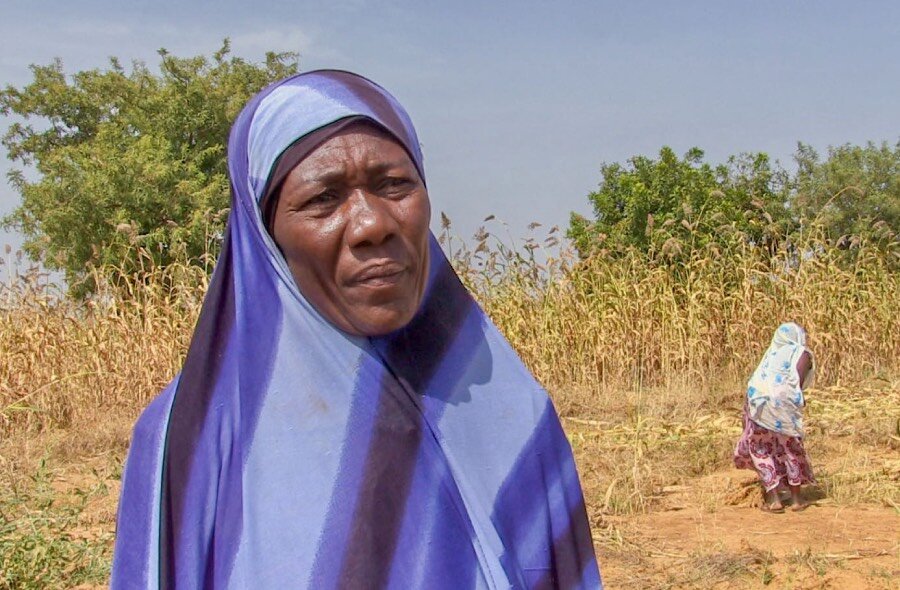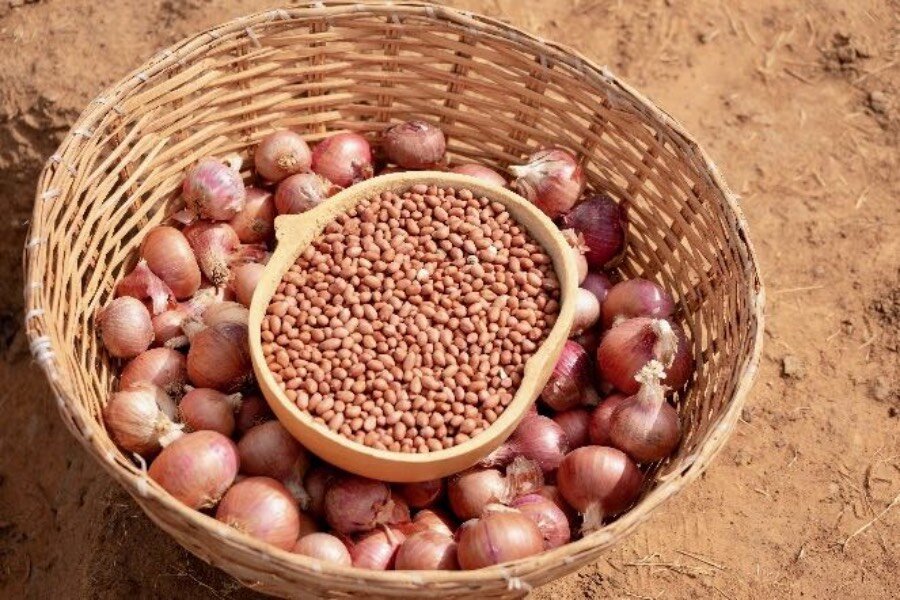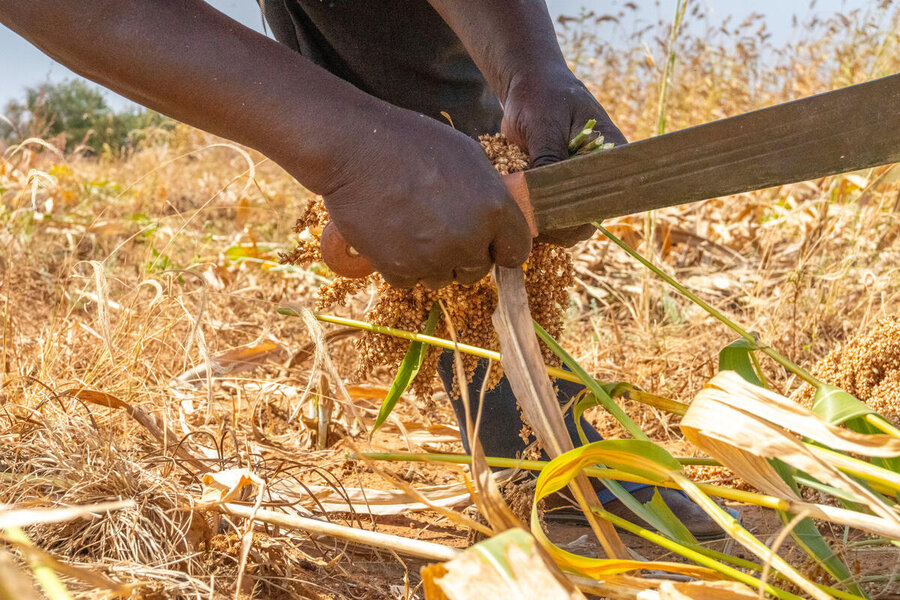Fighting hunger, building peace: How farmers are sowing the seeds of change in Burkina Faso

Ramata Ouedraogo never misses a farming season. It’s the main source of food for her family of 16. And in Burkina Faso’s punishingly dry and hot Nord region where she lives, she can only grow crops three or four months out of the year.
“Our biggest worry here is finding enough food for our children,” says 47-year-old Ouedraogo, who is part of a women’s farming organization supported by the World Food Programme (WFP) in the village of Reka.
“When we can have enough to eat thanks to our harvests, then we can use the rest of our profits for other needs.”

Farming is becoming increasingly difficult in Burkina Faso, which is feeling the effects of climate change. Higher temperatures also exacerbate land degradation, with nearly half the Nord region’s population living in areas partly or severely impacted.
Armed clashes and rising violence – which have displaced more than 2 million people and cut off humanitarian access to many communities – are other major contributors to shrinking food production and rising hunger and malnutrition in the country.
Despite the challenges and in collaboration with the Burkinabè Government, WFP has teamed up with two other United Nations partners – the Food and Agricultural Organization and the International Fund for Agricultural Development – in resilience-building projects to boost agricultural productivity and economic integration of smallholder farmers like Ouedraogo, who are the backbone of the country’s workforce.

Part of a joint partnership of Sahel government and humanitarian agencies, including WFP, the resilience-building projects target some 10,000 families in two of Burkina Faso's northwestern regions bordering Mali: the Nord and Boucle du Mahoun.
“For Burkina Faso to emerge from hunger, we need to work with the Government and partners to respond to humanitarian needs, attack the root causes of hunger and contribute to peace efforts,” says Elvira Pruscini, WFP Country Director and Representative in Burkina Faso.
“In the long term,” she adds, “this initiative should respond to communities’ food and nutrition security, increase their incomes and reduce their dependence on humanitarian aid.”
Difficult times

Today, spiking unrest has a sparked one of the world’s fastest displacement crises, with one in ten people uprooted in Burkina Faso. One in four face serious humanitarian needs. Some three million are predicted to face acute hunger during the June-August lean season between harvests, according to expert findings.
The violence has prevented farmers from reaching their fields, and humanitarian agencies from assisting vulnerable communities. Often the WFP-operated Humanitarian Air Service, or UNHAS, is the only way to deliver life-saving food and other support to hard-to-reach areas.
“It’s a serious, serious humanitarian situation,” said WFP Deputy Executive Director Carl Skau, during a recent visit to Reka and other northern communities. “This is a region that is very hard to reach. Some of the towns here are besieged and have been so for several months, in some cases for years. And so they need help and they need humanitarian life assistance – which WFP is providing.”

In Reka, the resilience-building initiative by WFP and partners has established solar-powered water stations, in which rainwater is collected and then pumped into large basins. This allows women farmers to grow and irrigate their crops of tomatoes, onions, groundnuts and potatoes year-round.
WFP also trains them on market gardening, compost production and water management, and offers cash assistance so they can buy inputs like fertilizer and seeds.
On a nearby plot of once-degraded land, villagers now plant staple millet, thanks to a traditional technique – reintroduced by the project – known as half-moons. These allow plants to better absorb the runoff of precious rainwater. Area farmers now earn about US$125 for their harvests, which translates into serious money for many.
Reka farmer Issouf Sawadogo says his millet harvests have boomed thanks to the half-moons: growing from three 100kg bags of the grain to more than 20 bags today. The millet and beans he cultivates go to feeding his family, he says, and helping out destitute neighbours.
“I will also sell some of the beans to buy school material for my children,” Sawadogo adds.

The resilience initiative is also strengthening bonds between the local farming community and violence-displaced newcomers who have settled here, according to Moussa Ouedragogo, prefect of the Oula commune that includes Reka village.
“Because the project includes internally displaced persons, it helped social cohesion to be deeply rooted in the villages where the activities are being implemented,” he says.
For Reka farmer Ouedraogo – who is not a related to the prefect – the project has been transformational.
“For more than 30 years, this land was barren and the children would play football on it,” she says of the 10-acre plot where golden millet plants can now push shoulder high. “It’s the first time we cultivate it.”



